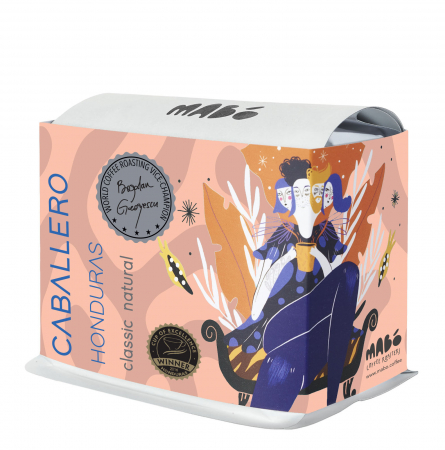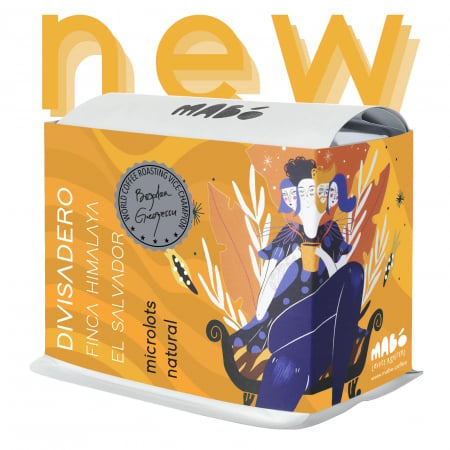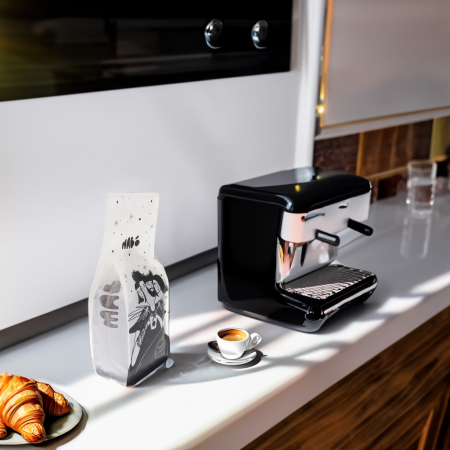Cafea De Specialitate Proaspat Prajita
Afiseaza: 1-24 din 24 produse
Filtre![Finca El Mirador, Columbia by MABO [Bogdan Georgescu] Cafea De Specialitate Proaspat Prajita - Finca El Mirador, Columbia by MABO [Bogdan Georgescu]](https://gomagcdn.ro/domains/mabo.coffee/files/product/medium/finca-el-mirador-columbia-anaerobic-natural-cafea-de-specialitate-381231.jpg)
Colombia
109,00 RON
de la 87,20 RON
Finca El Mirador, Columbia (Anaerobic Natural) Cafea de Specialitate
Suport clienti Roastery Shop (Vulturilor 31) Lu - Vi 08 - 17. Sa 09 -14 Du inchis | MABÓ ONE (Petru Rares 12): Lu - Vi 08 - 17. Sa - Du 09 -17
+40372901448 orders@mabo.coffee


![MABÓ Abantu Espresso Blend by MABO [Bogdan Georgescu] 1600x1600 Cafea De Specialitate Proaspat Prajita - MABÓ Abantu Espresso Blend by MABO [Bogdan Georgescu] 1600x1600](https://gomagcdn.ro/domains/mabo.coffee/files/product/medium/abantu-espresso-blend-de-sezon-cafea-de-specialitate-844938.jpg)
![Garse Ethiopia by MABO [Bogdan Georgescu] Cafea De Specialitate Proaspat Prajita - Garse Ethiopia by MABO [Bogdan Georgescu]](https://gomagcdn.ro/domains/mabo.coffee/files/product/medium/garse-ethiopia-natural-anaerobic-cafea-de-specialitate-801426.jpg)
![Nazimu Abamecha Ethiopia, by MABO [Bogdan Georgescu] Cafea De Specialitate Proaspat Prajita - Nazimu Abamecha Ethiopia, by MABO [Bogdan Georgescu]](https://gomagcdn.ro/domains/mabo.coffee/files/product/medium/nazimu-abamecha-etiopia-honey-cafea-de-specialitate-028805.jpg)
![Chevere Cauca, Colombia by MABO [Bogdan Georgescu] 1600x1600 Cafea De Specialitate Proaspat Prajita - Chevere Cauca, Colombia by MABO [Bogdan Georgescu] 1600x1600](https://gomagcdn.ro/domains/mabo.coffee/files/product/medium/chevere-cauca-columbia-sugarcane-decaf-cafea-de-specialitate-008702.jpg)
![Los Placeres, Nicaragua by MABO [Bogdan Georgescu] Cafea De Specialitate Proaspat Prajita - Los Placeres, Nicaragua by MABO [Bogdan Georgescu]](https://gomagcdn.ro/domains/mabo.coffee/files/product/medium/los-placeres-nicaragua-washed-cafea-de-specialitate-755905.jpg)
![Rio Negro & Iquira, Columbia by MABO [Bogdan Georgescu] Cafea De Specialitate Proaspat Prajita - Rio Negro & Iquira, Columbia by MABO [Bogdan Georgescu]](https://gomagcdn.ro/domains/mabo.coffee/files/product/medium/rio-negro-iquira-columbia-fully-washed-cafea-de-specialitate-560886.jpg)
![Gimbo Etiopia by MABO [Bogdan Georgescu] Cafea De Specialitate Proaspat Prajita - Gimbo Etiopia by MABO [Bogdan Georgescu]](https://gomagcdn.ro/domains/mabo.coffee/files/product/medium/gimbo-etiopia-natural-cafea-de-specialitate-661109.jpg)
![Capsule - Nazimu Abamecha, Etiopia [Honey] - Cafea de specialitate Cafea De Specialitate Proaspat Prajita - Capsule - Nazimu Abamecha, Etiopia [Honey] - Cafea de specialitate](https://gomagcdn.ro/domains/mabo.coffee/files/product/medium/capsule-nazimu-abamecha-etiopia-honey-cafea-de-specialitate-808158.jpg)
![Capsule - Finca El Diviso, Columbia [Natural Anaerobic 180h] - Cafea de specialitate Cafea De Specialitate Proaspat Prajita - Capsule - Finca El Diviso, Columbia [Natural Anaerobic 180h] - Cafea de specialitate](https://gomagcdn.ro/domains/mabo.coffee/files/product/medium/capsule-finca-el-diviso-columbia-natural-anaerobic-180h-cafea-de-specialitate-749470.jpg)
![DRIP BAG - Finca El Diviso, Columbia [Natural Anaerobic 180h] - Cafea de specialitate Cafea De Specialitate Proaspat Prajita - DRIP BAG - Finca El Diviso, Columbia [Natural Anaerobic 180h] - Cafea de specialitate](https://gomagcdn.ro/domains/mabo.coffee/files/product/medium/drip-bag-finca-el-diviso-columbia-natural-anaerobic-180h-cafea-de-specialitate-130564.jpg)
![Limu Etiopia by MABO [Bogdan Georgescu] Cafea De Specialitate Proaspat Prajita - Limu Etiopia by MABO [Bogdan Georgescu]](https://gomagcdn.ro/domains/mabo.coffee/files/product/medium/limu-etiopia-washed-cafea-de-specialitate-268213.jpg)
![Hambela Etiopia by MABO [Bogdan Georgescu] Cafea De Specialitate Proaspat Prajita - Hambela Etiopia by MABO [Bogdan Georgescu]](https://gomagcdn.ro/domains/mabo.coffee/files/product/medium/hambela-etiopia-natural-cafea-de-specialitate-065062.jpg)
![Fazenda Barinas Brazil by MABO [Bogdan Georgescu] Cafea De Specialitate Proaspat Prajita - Fazenda Barinas Brazil by MABO [Bogdan Georgescu]](https://gomagcdn.ro/domains/mabo.coffee/files/product/medium/fazenda-barinas-brazil-natural-anaerobic-cafea-de-specialitate-347062.jpg)
![Bonita Springs Panama by MABO [Bogdan Georgescu] Cafea De Specialitate Proaspat Prajita - Bonita Springs Panama by MABO [Bogdan Georgescu]](https://gomagcdn.ro/domains/mabo.coffee/files/product/medium/bonita-springs-panama-natural-cafea-de-specialitate-135586.jpg)
![Las Brisas, Guatemala by MABO [Bogdan Georgescu] Cafea De Specialitate Proaspat Prajita - Las Brisas, Guatemala by MABO [Bogdan Georgescu]](https://gomagcdn.ro/domains/mabo.coffee/files/product/medium/las-brisas-guatemala-washed-cafea-de-specialitate-834451.jpg)
![Santa Mónica - Colombia by MABO [Bogdan Georgescu] Cafea De Specialitate Proaspat Prajita - Santa Mónica - Colombia by MABO [Bogdan Georgescu]](https://gomagcdn.ro/domains/mabo.coffee/files/product/medium/santa-monica-colombia-strawberry-infused-72h-anaerobic-honey-cafea-de-specialitate-630596.jpg)
![El Jardin, Colombia by MABO [Bogdan Georgescu] 1600x1600 Cafea De Specialitate Proaspat Prajita - El Jardin, Colombia by MABO [Bogdan Georgescu] 1600x1600](https://gomagcdn.ro/domains/mabo.coffee/files/product/medium/finca-el-jardin-columbia-natural-cafea-de-specialitate-614052.jpg)
![El Eden, Peru by MABO [Bogdan Georgescu] 1600x1600 Cafea De Specialitate Proaspat Prajita - El Eden, Peru by MABO [Bogdan Georgescu] 1600x1600](https://gomagcdn.ro/domains/mabo.coffee/files/product/medium/el-eden-peru-washed-cafea-de-specialitate-201386.jpg)
![Geisha ABU COFFEE Panama by MABO [Bogdan Georgescu] Cafea De Specialitate Proaspat Prajita - Geisha ABU COFFEE Panama by MABO [Bogdan Georgescu]](https://gomagcdn.ro/domains/mabo.coffee/files/product/medium/geisha-abu-coffee-panama-mosto-dry-cascara-maceration-washed-cafea-de-specialitate-934275.jpg)
![Geisha ABU COFFEE Panama by MABO [Bogdan Georgescu] Cafea De Specialitate Proaspat Prajita - Geisha ABU COFFEE Panama by MABO [Bogdan Georgescu]](https://gomagcdn.ro/domains/mabo.coffee/files/product/medium/geisha-abu-coffee-panama-natural-double-phase-anaerobic-cafea-de-specialitate-532785.jpg)